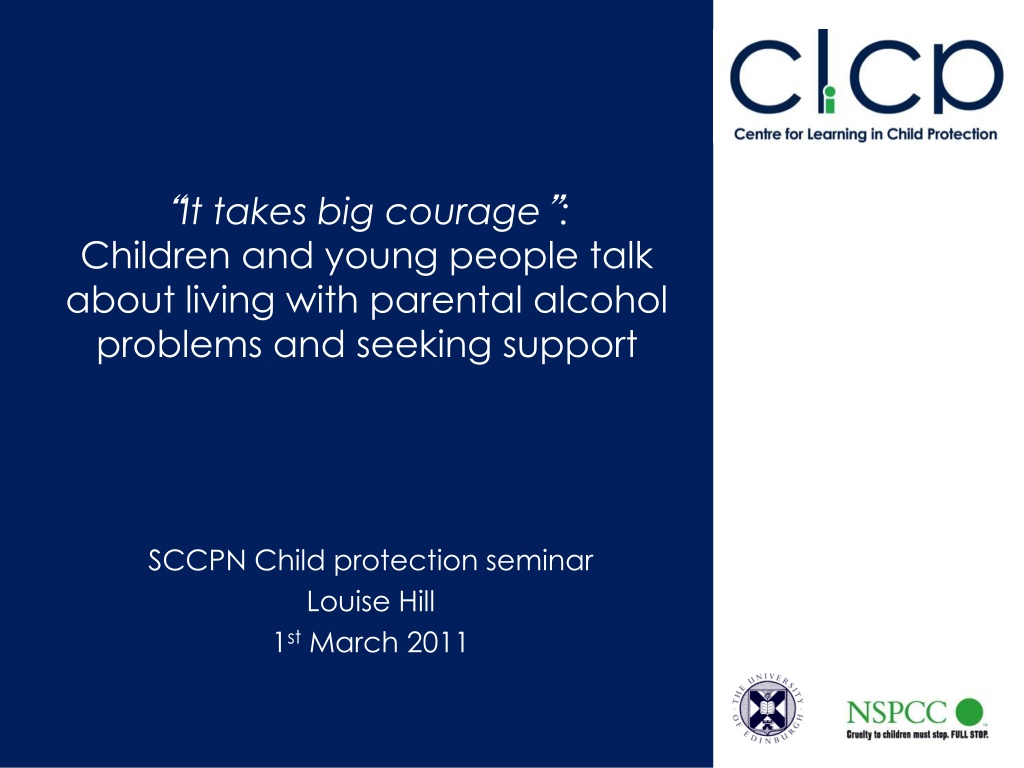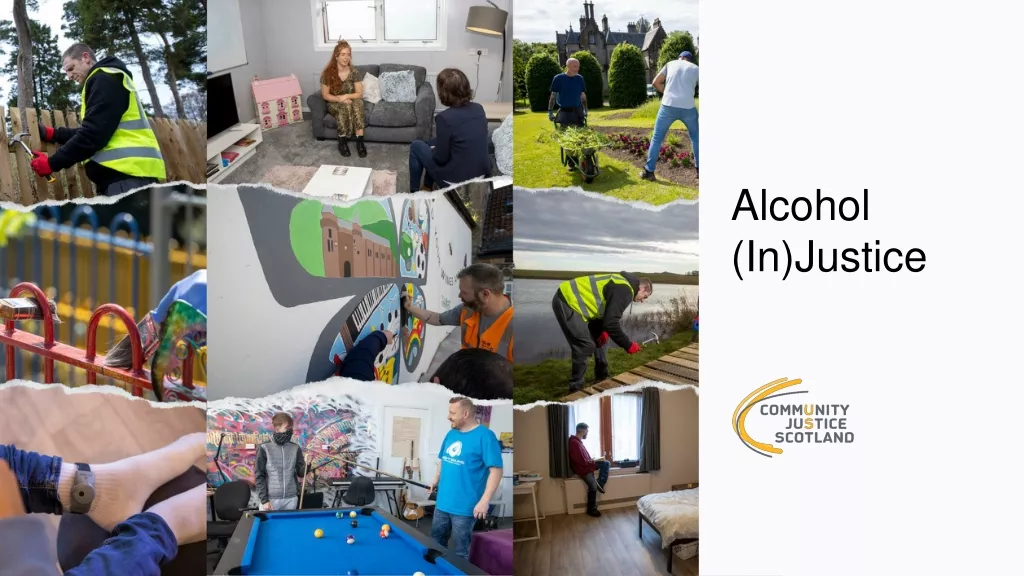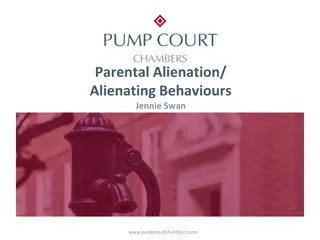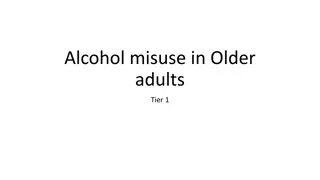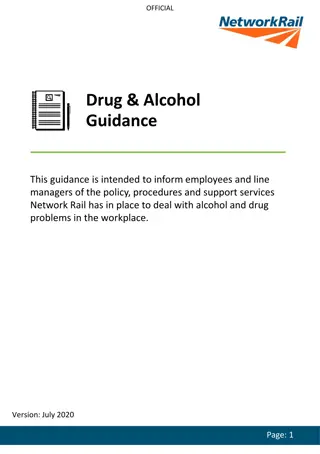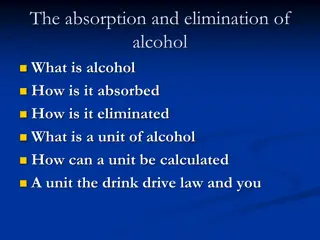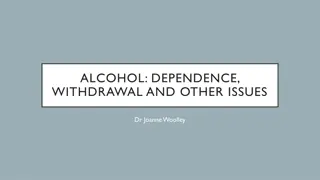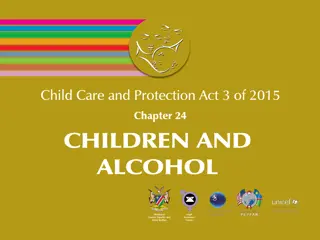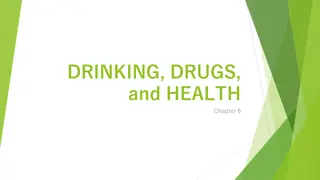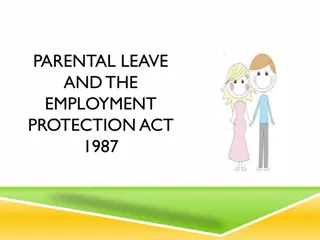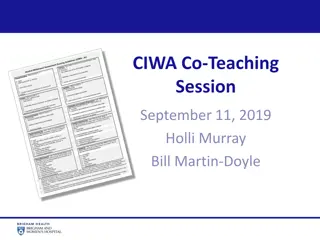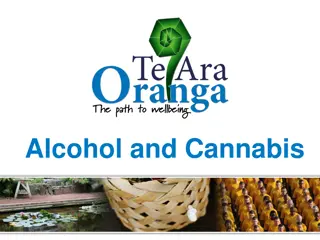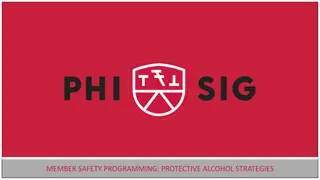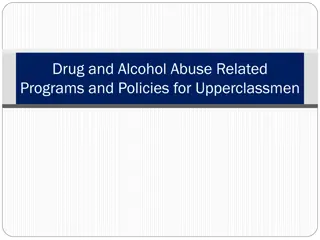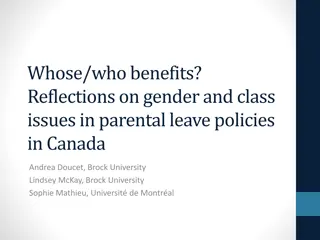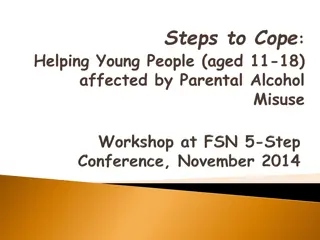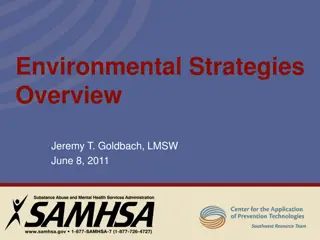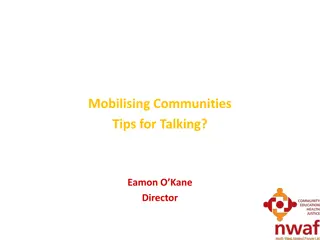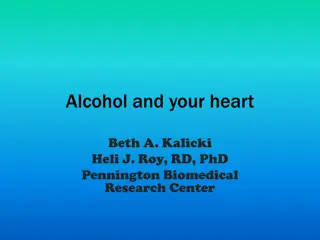Understanding the Impact of Parental Alcohol Problems on Children
Children living with parental alcohol problems often face challenges that can have lasting effects on their well-being. This seminar highlights the need for support and courage for these children and discusses the implications for practitioners. It also sheds light on the hidden population of children affected by parental alcohol misuse, the policy context surrounding this issue, and the varied impacts on children of different ages. Understanding the diverse experiences and outcomes of these children is essential for providing effective intervention and support.
Download Presentation

Please find below an Image/Link to download the presentation.
The content on the website is provided AS IS for your information and personal use only. It may not be sold, licensed, or shared on other websites without obtaining consent from the author. Download presentation by click this link. If you encounter any issues during the download, it is possible that the publisher has removed the file from their server.
E N D
Presentation Transcript
It takes big courage: Children and young people talk about living with parental alcohol problems and seeking support SCCPN Child protection seminar Louise Hill 1stMarch 2011
Overview Background Living with parental alcohol problems The need for courage Implications for practitioners 2
Hidden population Issues of stigma and secrecy. Legality and broad social acceptability of alcohol. Defining harmful drinking can be difficult and relies on parental reporting. Government figures estimate 65 000 children (under 16) are living with parental alcohol misuse in Scotland (2009). UK population estimates (Manning et al, 2009): Approximately 30% of children under 16 live with at least one binge drinking parent in the UK [General Household Survey, 2004] 22% of children live with a hazardous drinker and 6% with a dependent drinker [National Psychiatric Morbidity Study, 2000] 3
Policy context Hidden harm An influential inquiry by the Advisory Council on the Misuse of Drugs published in 2003 Focus on needs of children (foetal to eighteen years) of problem drug users A catalyst for action: responses from Scottish Government extended the remit to include alcohol Alcohol and drug policy Road to recovery (2008) Changing Scotland s Relationship with alcohol: A Framework for Action (2009) 4
Impact on children There is considerable variety in the experiences and outcomes for children affected by parental alcohol problems; thus, it is important to recognise that the impact on every child within every family can be different and there is no simple negative trajectory (Velleman, R & Orford, J, 1999) Cumulative affect of multiple adversities in childhood that leads to negative outcomes (Cleaver et al. 1999) BUT for the majority of children, parental alcohol problems have a negative affect on their childhood; most of the children conveyed a clear message of deep hurt resulting from parental drinking, although a minority appeared to have taken it in their stride (Laybourn et al. 1996:136) 5
Impacts (Adapted from Cleaver et al., 1999) Potential problems Protective factors Unborn child Foetal damage maternal alcohol consumption & maternal wellbeing Physical violence Good antenatal care Support & safety Children 0-4 years Neglect; consequences of parental behaviour on attachment consistency, warmth; possibility of physical danger Responsibilities & unable to tell Caring adult & supportive help Good home environment Regular attendance at nursery provision Children 5-9 years Emotional wellbeing Impact on schooling attendance, concentration, friendships, bullying Responsibilities at home & physical safety Cognitive ability to make sense of parental alcohol use & separate self Positive school experience & friends Social networks incl. organised clubs Children 10-14 Identity, puberty, denial of own needs and feelings Isolation, young carer, hostile to outsiders Coping strategies & information Unstigmatised support adult as a champion Children 15+ Inappropriate role models Risk of school exclusion/own needs ignored Emotional problems/low self esteem Attendance at college/employment Trusted adult 6
Children identified at risk Audits of Child Protection Registers One London audit of children on Child Protection Registers (CPR) found parental substance misuse was a concern for just over half the children, with alcohol the greater concern at 24% compared to 16% heroin use (Forrester, 2000) English study found 75% of children on CPR had parents misusing alcohol on its own or with other substances; furthermore, social workers had the greatest concerns about these children (Hayden, 2000) Forrester & Harwin s (2006) study identified a third (33%) of children on the CPR affected primarily by parental alcohol problems. A study across six English local authorities found a third of children in social worker case files were negatively affected by parental alcohol problems (Cleaver et al. 2007) Small scale study of social backgrounds of children referred to the Children s hearing system found 39% of families had one or both parents have problems with alcohol (SCRA, 2004) 7
Living with parental alcohol problems Jessica, aged ten Drawing produced when asked what comes into your head when I say the word alcohol ? (Hill, 2011) 8
A real concern for children and young people when using ChildLine (confidential telephone support service) Parental alcohol misuse found to be the most frequent concern regarding parental health and well being (31%) followed by drug misuse (11%) and domestic abuse (7%) in a study of 9 000 children s phone calls to ChildLine Scotland (CRFR/ChildLine Scotland 2005) Often many worries of which parental alcohol problems are a part family conflict and violence, domestic abuse, parental mental health, bereavement, financial hardships, caring responsibilities, school difficulties (especially bullying/attendance) (Gillan et al 2009) 9
The need for courage Factors affecting talking about parental alcohol problems and seeking support (Often) love and loyalty for a parent and family Fear of being removed Fear of reprisals (in some cases) Fear of being bullied/associated stigma if known Do not want to be treated differently Not being taken seriously Being able to trust Optimism it will get better soon! Finding the right words . 10
Implications for practitioners Need to recognise the possible anxieties in talking about parental alcohol problems will take time and trust Provide non-judgemental and non-stigmatising support Find different ways to communicate Use stories Good to start the conversation Talk through the third person or abstract Open methods (e.g. alcohol bottle) Be sensitive in using alcohol education resources Be open to the ways in which children may engage in different methods and choose to communicate in different ways Challenges of understanding multiple problems - children, parents and professionals views may all differ Parents may be reluctant to accept alcohol use has an impact on children or engage with services 11
References Advisory Council on the Misuse of Drugs (ACMD) (2003) Hidden Harm: responding to the needs of children of problem drug users London: Home office Cleaver, H, Unell, I, Aldgate, J (1999) Children s needs parenting capacity: The impact of parental mental illness, problem alcohol and drug use and domestic violence on children London: TSO CRFR/ChildLine (2005) Children s concerns about the health and wellbeing of parents and significant others Edinburgh: CRFR Forrester, D. (2000) Parental substance misuse and child protection in a British sample A survey of children on the child protection register in an inner London district office. Child Abuse Review, 9(4):235-246. Forrester, D & Harwin, J (2006) Parental substance misuse and child care social work: findings from the first stage of a study of 100 families, Child & Family Social Work, 11(4): 325-335. Gillan, E, Wales, A, with Hill, L, & Robertson, F (2009) Untold damage: children living with parents who drink harmfully Glasgow: ChildLine Scotland/SHAAP Hayden, C (2004) Parental substance misuse and child care social work: research in a city social work department in England, Child Abuse Review 13(1):18-30 12
Laybourn, A., Brown, J and Hill, M (1996) Hurting on the inside: Childrens experiences of parental alcohol misuse Aldershot: Avebury Manning, V, Best, D, Faulkner, N & Titherington, E (2009) New estimates of the number of children living with substance misusing parents: results from UK national household surveys BMC Public Health 9:377-388 Scottish Government (2008) The road to recovery: a new approach to tackling Scotland s drug problem Edinburgh: Scottish Government Scottish Government (2009) Changing Scotland s relationship with alcohol: a framework for action Edinburgh: Scottish Government SCRA (2004) Social backgrounds of children referred to the Reporter: a pilot study Stirling: Scottish Children s Reporters Administration Velleman, R & Orford, J (1999) Risk and resilience: Adults who were children of problem drinkers Amsterdam: Harwood Academic 13
Contact details Centre for Learning in Child Protection University of Edinburgh and NSPCC Moray House School of Education, Paterson's Land, Holyrood Road, Edinburgh, EH8 8AQ Tel: 0131 651 6443 Email: Louise.Hill@ed.ac.uk Thank you for listening! 14
